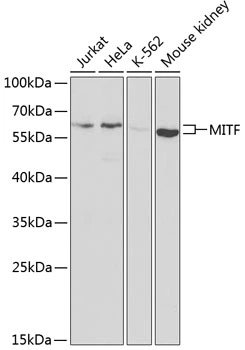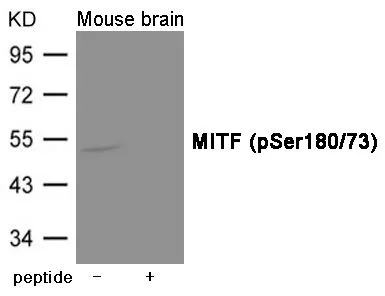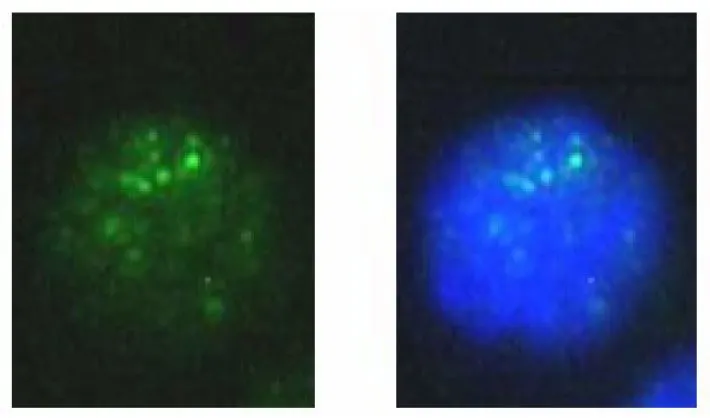![IHC-P analysis of human melanoma tissue using GTX34844 MITF antibody [MITF/915]. IHC-P analysis of human melanoma tissue using GTX34844 MITF antibody [MITF/915].](https://www.genetex.com/upload/website/prouct_img/normal/GTX34844/GTX34844_20200115_IHC-P_765_w_23060801_962.webp)
IHC-P analysis of human melanoma tissue using GTX34844 MITF antibody [MITF/915].
MITF antibody [MITF/915]
GTX34844
ApplicationsImmunoHistoChemistry, ImmunoHistoChemistry Paraffin
Product group Antibodies
TargetMITF
Overview
- SupplierGeneTex
- Product NameMITF antibody [MITF/915]
- Delivery Days Customer9
- Application Supplier NoteIHC-P: 1-2microg/ml for 30 minutes at RT. *Optimal dilutions/concentrations should be determined by the researcher.Not tested in other applications.
- ApplicationsImmunoHistoChemistry, ImmunoHistoChemistry Paraffin
- CertificationResearch Use Only
- ClonalityMonoclonal
- Clone IDMITF/915
- Concentration0.2 mg/ml
- ConjugateUnconjugated
- Gene ID4286
- Target nameMITF
- Target descriptionmelanocyte inducing transcription factor
- Target synonymsCMM8, COMMAD, MI, MITF-A, WS2, WS2A, bHLHe32, microphthalmia-associated transcription factor, class E basic helix-loop-helix protein 32, melanogenesis associated transcription factor, microphtalmia-associated transcription factor
- HostMouse
- IsotypeIgG1
- Protein IDO75030
- Protein NameMicrophthalmia-associated transcription factor
- Scientific DescriptionThe protein encoded by this gene is a transcription factor that contains both basic helix-loop-helix and leucine zipper structural features. The encoded protein regulates melanocyte development and is responsible for pigment cell-specific transcription of the melanogenesis enzyme genes. Heterozygous mutations in the this gene cause auditory-pigmentary syndromes, such as Waardenburg syndrome type 2 and Tietz syndrome. [provided by RefSeq, Aug 2017]
- Storage Instruction-20°C or -80°C,2°C to 8°C
- UNSPSC12352203


![WB analysis of A375 cell lysate using GTX13703 MITF antibody [21D1418]. Dilution : 4 microg/ml](https://www.genetex.com/upload/website/prouct_img/normal/GTX13703/GTX13703_990_WB_w_23060620_374.webp)



![IHC-P analysis of human malignant melanoma tissue using GTX01904 MITF antibody [34CA5]. Note nuclear staining of melanoma cells.](https://www.genetex.com/upload/website/prouct_img/normal/GTX01904/GTX01904_20200811_IHC-P_57_w_23053121_316.webp)
![IHC-P analysis of human melanoma tissue using GTX34842 MITF antibody [D5].](https://www.genetex.com/upload/website/prouct_img/normal/GTX34842/GTX34842_20200115_IHC-P_764_w_23060801_548.webp)
![IHC-P analysis of human melanoma tissue using GTX34843 MITF antibody [SPM290].](https://www.genetex.com/upload/website/prouct_img/normal/GTX34843/GTX34843_20200115_IHC-P_766_w_23060801_925.webp)